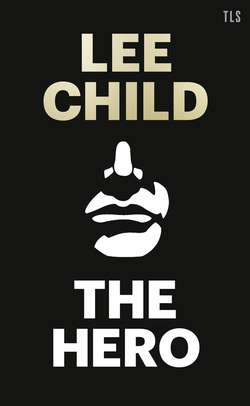Читать книгу The Hero - Ли Чайлд, Lee Child - Страница 9
ОглавлениеThe best linguist I know is my daughter Ruth. Her main enthusiasm is the deep structure of language, but she runs a lively sideline in English etymology, fascinated by the origins of words, their drifting meanings and the way in which their choice and usage subtly influence the mood and temper of the clauses in which they appear. Once we were driven from New York to Philadelphia – me for a book event at the Free Library, she hitching a ride to visit old college friends – and we talked the whole two hours about the use of a gerund on an advertising billboard we saw. Did the gerund somehow offer openness, warmth, inclusion, invitation? Mostly she talked, and I listened. Very rarely do I know something she doesn’t. My only score in recent years was the origin of the English word ‘rival’ – but I had an unfair advantage: I have a law degree, and studied the history of English common law, and knew that the long-ago ground-zero issue for all kinds of torts and liabilities was bodies of water, in terms of upstream depletion and downstream flooding and so on. Hence rival, from the Latin rivalis, one who competes over a river.
But for all her personal rules and grammar-based rigour about structure, Ruth is very permissive in terms of the prescriptive-descriptive linguistic debate. She’s happy for words to change their meanings. Grammatical conventions, too. She feels language is what its users need it to be. She won’t exclude people for a lack of facility or fluency. Not like the ancient Greeks, who had utter contempt for those who couldn’t speak their language. ‘Barbarian’ is a Greek word, meaning a savage – not necessarily a violent, rampaging or physical savage, but one whose savagery consisted solely in not being able to speak Greek. To the Greeks, all that such people could manage was baa-baa-baa, like sheep. Hence ba-ba-rian. Ruth is not like that.
I’m somewhere between the two poles. I think words must have commonly agreed meanings, otherwise all we can ever say to each other is baa-baa-baa. If someone arranges to meet me at the baseball stadium, I’ll show up there, not the ice hockey arena. If someone asks for a cigarette, I’ll give them one, not a pen or a key or a handkerchief. And so on, and so forth. Words should be more like knives than pillows. Which is not to say they should never change. I’m perfectly happy with the migration of a word like rival. No doubt its modern meaning was first introduced as a metaphor. Or more likely, the very first time out, as a simile: You two are competing like … like … rivals! It’s a good simile and therefore a good subsequent migration, preserving as it does the core emotional truth of the original, before transferring it to a new context.
I’m also happy with adoptions, like, say, addict (since we’ve mentioned many millions of them) – from the Latin addictus, which meant a debtor awarded as a slave to his creditor. That kind of thing didn’t happen any more, but when a new word was needed (not long after Sertürner first isolated morphine, unsurprisingly), addict was an astute choice, with the shame of indebtedness suggesting the shame of submission to a dependency, both blended with the strong, almost literal, slavery metaphor. I’m content that over many centuries ‘nice’ moved from disapproval to approbation, and that over the same span ‘bully’ moved in the other direction. I can deal with stuff invented five minutes ago. When I was a kid, ‘sick’ was what you pretended to be to get a day off work. Now it’s the best thing ever. Soon it won’t be. Soon it will be forgotten, like the groovy words we used, back in the day. All good.
Except that, it must be said, occasionally common sense yields to pedantry. My personal irritant is ‘dilapidated’. Right there in the middle of the word is the Latin lapis, which means stone. A dilapidated building is one from which stones have been removed or taken out, possibly stolen, possibly to be reused or repurposed. Hence a wooden hut cannot be dilapidated. A brick house cannot be dilapidated. They were never lapidated to start with. Hence frequent irritation. Such are the perils of a classical education. Education is different now, but it wasn’t all that different before my time, not for a couple of centuries. Any well-educated person anywhere in Europe would have had a solid grounding in the classics. Certainly the coiner of addict did. Is it an exaggeration to say that Latin and Greek were known quantities in households with more books than a lone family bible? Probably, but if a member of such a household completed any kind of undergraduate or postgraduate work, there would have been significant accumulated exposure to the classical languages, and the cultures they represented, and their stories, their myths and their legends. Obviously old Gabriel Fallopius knew all that stuff. Certainly Friedrich Sertürner knew all about the Greek god of dreams. (And was probably ready to argue for forty-five minutes why it was indeed dreams
